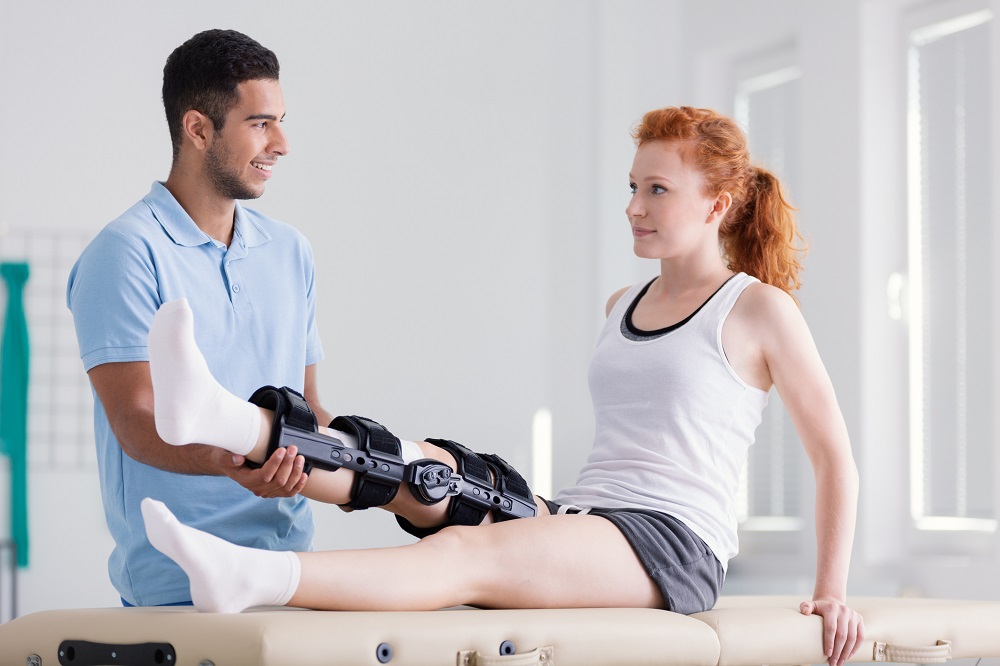One of the most common knee injuries people receive is tearing or spraining their anterior cruciate ligament (ACL).
The ACL is a major ligament that helps to hold the bones together in the knee. This band of connective tissue also helps to keep the knee stable by limiting joint mobility while doing activities such as walking or running.
Injury to the ACL typically occurs among individuals who participate in sports or fitness activities where rapid pivoting or turning is common. Injuries can also happen when someone:
- Lands awkwardly after jumping
- Stops suddenly
- Receives a direct blow to the knee
- Slows down or changes direction suddenly
Women are more prone to ACL injuries than men. This is due to differences in anatomy such as wider pelvises in women. Others who may have an increased risk for injury include those who:
- Are participating in certain sports such as basketball, soccer, football, skiing or gymnastics
- Do not participate in conditioning training
- Have a previously torn ACL
- Wear footwear that does not fit properly
Individuals who receive an ACL injury may experience symptoms that include:
- A “popping” sound at the time of injury
- Feeling a sudden shift in the knee joint
- Rapid swelling
- Loss of full range of motion
- Pain
ACL injuries can be prevented by:
- Strengthening quadriceps and hamstring muscles
- Crouching and bending at the knees when pivoting
- Training and conditioning all year round
- Practicing proper landing techniques when jumping
- Stretching
A diagnosis of an ACL injury is determined by a physical exam and (or) X-ray, MRI or ultrasound imaging. Treatment varies with severity and may include rehabilitation or surgery.
To schedule an appointment with a doctor at Flushing Hospital Medical Center, please call 718-670-5486.
All content of this newsletter is intended for general information purposes only and is not intended or implied to be a substitute for professional medical advice, diagnosis or treatment. Please consult a medical professional before adopting any of the suggestions on this page. You must never disregard professional medical advice or delay seeking medical treatment based upon any content of this newsletter. PROMPTLY CONSULT YOUR PHYSICIAN OR CALL 911 IF YOU BELIEVE YOU HAVE A MEDICAL EMERGENCY.
